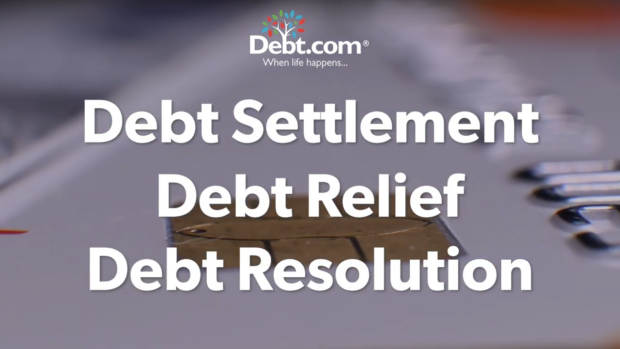
Debt consolidation and debt settlement are two distinct approaches to managing debt. Debt consolidation involves combining multiple debts into a single loan with a lower interest rate, aiming to simplify payments and reduce overall interest costs. It replaces numerous payments with one monthly installment, appealing to borrowers with good credit who prefer a structured repayment plan and wish to lower their interest expenses over time. Debt settlement entails negotiating with creditors to settle debts for less than the total amount owed, usually through lump-sum payments or structured settlements. It is pursued by borrowers facing financial hardship and seeking to reduce their debt burden significantly.
Debt consolidation typically results in predictable and manageable payments, facilitating easier budgeting and financial planning. Its stability appeals to borrowers aiming to regain control over their finances without sacrificing their credit scores. Debt settlement involves irregular payments and unpredictable outcomes, making it a riskier choice for borrowers concerned about maintaining their creditworthiness.
Choosing between debt consolidation and debt settlement depends on the borrower’s financial circumstances and goals. Debt consolidation is ideal for borrowers seeking a structured repayment plan with potentially lower interest rates to maintain or improve their credit scores. Debt settlement suits borrowers facing severe financial hardship willing to accept potential credit score damage in exchange for quickly reducing their debt burden. Consulting with a financial advisor helps determine the best approach based on one’s financial situation and long-term goals.
Researching and selecting reputable options is crucial in exploring debt consolidation. The market offers various best debt consolidation companies known for their reliable services and customer satisfaction. Companies like Debt.com, Reach Financial, and Wells Fargo provide competitive solutions tailored to different borrowers’ needs, offering options from personal loans to balance transfer cards. Ensuring the chosen company is accredited, transparent about fees, and offers favorable terms is essential for a successful debt consolidation strategy.
Table of Contents
How does Debt Consolidation Work?
Debt consolidation works by consolidating multiple debts into a single loan, typically offered at a lower interest rate. The method facilitates repayment by requiring only one monthly payment rather than numerous payments to various creditors.
The debt consolidation process has five steps. First, evaluate the current debts. Compiling complete data regarding the minimum payments, interest rates, and outstanding balances is imperative. Second, explore various debt consolidation options to determine the most suitable choice for the financial circumstances. These include personal loans, balance transfer credit cards, home equity loans, or home equity lines of credit (HELOCs).
Third, apply for a debt consolidation loan by furnishing the selected lender with the requisite information regarding the financial status and the debts to be consolidated after determining the most suitable option. Fourth, the lender issues a new loan that settles the current obligations, resulting in a single monthly payment, provided the application is approved. Lastly, a regular payment schedule for the consolidated loan must be established, which usually has a more favorable interest rate than the previous loans.
Home equity loans, balance transfer credit cards, personal loans, and home equity lines of credit (HELOCs) are among the debt consolidation loan varieties.
Personal loans are unsecured loans with repayment terms spanning 1 to 7 years and fixed interest rates. They consolidate various debts, such as student loans, credit cards, and other personal loans.
Balance transfer credit cards provide an introductory 0% APR period that typically lasts 12-18 months. The period enables borrowers to transfer and pay off existing credit card balances. Qualification for these cards necessitates a good to exceptional credit score, and they impose a balance transfer fee of 3-5% of the transferred balance.
Home equity loans enable borrowers to borrow against the equity in their home, utilizing their property as collateral. Debt consolidation loans usually have longer repayment terms, ranging from 5 to 15 years, and lower interest rates.
Home equity lines of credit (HELOCs) are comparable to home equity loans; however, they operate more like credit cards, permitting borrowers to withdraw funds as required. The repayment terms typically consist of a draw period followed by a repayment period, with interest rates that are frequently variable and based on the prime rate.
Choosing a debt consolidating loan that is ideal for the financial situation and objectives while offering the lowest interest rate simplifies the repayment process and saves money over time.
What are the Ways to Manage Debt Consolidation?
The ways to manage debt consolidation are listed below.
- Debt Management Program (DMP): DMP is a service by debt relief firms or nonprofit credit counseling organizations. It consolidates debts by settling with creditors through reduced interest rates and monthly payments. Many severely indebted borrowers consider it a bankruptcy alternative. The process includes working with a credit counseling agency to establish a DMP, negotiating with creditors, closing all credit card accounts, and making a single monthly payment to the agency for distribution to creditors. Advantages include improving credit score, free services, and getting good loan rates. Disadvantages include the agency’s stringent financial management standards and an initial decline in credit score.
- Balance Transfer: A balance transfer involves transferring debt from one or more credit cards to a new card offering a promotional 0% or low interest rate for a limited time. Borrowers with a credit score of 700 or higher who aim to consolidate and pay off credit card balances more efficiently often consider balance transfer. The process includes applying for a new credit card with a promotional balance transfer rate, transferring current high-interest balances, and aiming to pay off the transferred balance before the promotional period ends to avoid higher interest rates. Advantages include avoiding previous credit cards, having no collateral requirements, and having interest savings during the introductory period. Disadvantages include a hard pull on the credit record, a 3% to 5% transfer fee, a potentially higher APR after the promotional period, and the risk of failing to correct bad spending habits.
- Debt Consolidation Loan: A debt consolidation loan is a type of personal loan with a set interest rate and repayment period that consolidates several obligations, including credit card balances. Borrowers with a credit score in the mid-600s or higher seeking to consolidate debts and secure a reduced interest rate are generally considered to have good to excellent credit. The procedure involves applying for a loan via a bank, credit union, or online lender, using the loan proceeds to pay off previous debts, and making a single monthly payment on the new loan. Advantages include no need for collateral, fast funding, and approval, loan amounts from $1,000 to $100,000, and often lower interest rates than credit cards. Disadvantages include potential origination, late and prepayment fees, the necessity of excellent credit for the best rates, and the risk of debt consolidation loan scammers.
Does the Government Offer Debt Consolidation Loans?
Yes, the government offers debt consolidation loan options, focusing primarily on student loans. Government debt consolidation programs help borrowers merge federal student loans, such as Perkins, Stafford, and Direct, into a single loan with fixed interest rates and smaller monthly payments. Credit card debt and personal loans are excluded from these programs. The government supports debt consolidation through Government Debt Consolidation Programs, which assist in negotiating lower interest rates and extended repayment terms for consolidated loans.
Government assistance extends to other financial obligations. The Veterans Affairs (VA) provides targeted assistance to veterans with VA-sponsored home loans struggling with mortgage payments, potentially preventing foreclosure. Programs like Medicaid, Medicare, CHIP, and initiatives under the Affordable Care Act offer medical debt relief, alleviating healthcare-related financial burdens.
Nonprofit credit counseling services and charitable organizations are crucial in government-supported efforts to reduce debt. These organizations offer low-cost or free services to help borrowers manage and reduce their debt effectively. State and local charities collaborate with these agencies to provide specialized debt assistance programs tailored to diverse financial situations.
Direct government debt consolidation loans are limited to student loans; however, these combined efforts through various programs provide essential tools for borrowers seeking to manage and restructure their financial obligations. These initiatives offer solutions to debt challenges and financial stability through medical debt relief, non-profit counseling, student loan consolidation, or veteran’s mortgage assistance.
How does Debt Settlement Work?
Debt settlement works by engaging a non-affiliated firm to negotiate with creditors on the borrower’s behalf to reduce the total amount owed on unsecured debts like credit card debt, medical expenses, or personal loans. The goal is to arrange a settlement where creditors accept a lump-sum payment that is less than the borrower’s original debt. The process typically involves ceasing credit payments and accumulating funds in a dedicated account over two to four years. Settlement firms facilitate transactions through which creditors accept reduced amounts in exchange for forgiveness of the remaining debt after sufficient funds are saved.
Debt settlement carries significant risks. It adversely impacts the credit score as settled debts and missed payments linger on the record for up to seven years, making it harder to secure credit in the future. There’s no guarantee that creditors are going to accept the settlement offer proposed by the debt settlement company. These firms charge a fee, typically 15% to 25% of the total debt enrolled in the program, deducted from the funds allocated for settlement.
The most suitable option depends on the financial situation, such as debt consolidation loans, credit counseling, or bankruptcy. Consult with a financial advisor before pursuing debt settlement to fully comprehend the implications and explore all available options for effectively managing the debt.
What is the Difference of Debt Consolidation and Debt Settlement?
The differences between debt consolidation and debt settlement are shown in the table below.
| Particular | Debt Consolidation | Debt Settlement |
|---|---|---|
| Objective | Combine multiple debts into a single loan with one interest rate | Negotiate with creditors to pay less than the full amount owed |
| Process | Obtain a new loan to pay off existing debts | Directly negotiate with creditors to accept a lump-sum or installment payment |
| Impact on Credit Score | It helps improve credit scores by reducing the credit utilization ratio | Significantly damage credit scores due to late/missed payments and settled accounts |
| Eligibility | Generally requires good credit to qualify for best rates | Typically used for accounts that are significantly past due |
| Cost | Interest rates and fees for consolidation loans vary | Debt settlement companies charge fees, but self-negotiation is free |
How do I know if a debt consolidation company is Reliable?
The things to consider to know if a debt consolidation company is reliable are listed below.
- Check for Accreditation: Confirm if the company is recognized by respected organizations such as the National Foundation for Credit Counseling (NFCC) or holds relevant industry certifications.
- Read Reviews and Ratings: Evaluate customer experiences by consulting reviews and ratings on websites like the Better Business Bureau (BBB) and other consumer protection agencies.
- Verify Licensing: Contact the banking department or attorney general’s office to determine if the business has a license to operate in a specific state.
- Consult Government and Consumer Protection Websites: The Federal Trade Commission and Consumer Financial Protection Bureau offer information to help determine which services are legitimate.
- Transparent Fees and Terms: Select businesses that don’t overpromise and provide upfront fees, interest rates, and conditions.
- Avoid Unrealistic Promises: Be wary of companies that promise debt reduction since credible firms set realistic goals depending on borrower’s financial circumstances.
- Professional and Courteous Service: Reputable businesses contact the borrower only after they have expressed interest and communicate openly and honestly at every stage.
- Get Recommendations: Ask credit counselors, accountants, or financial consultants for recommendations.
- Check for a Physical Address: Ensure the business isn’t just online and has a verifiable physical address.
- Free Consultation: Look for organizations that provide a free, no-obligation consultation to assess the financial status before committing to their services.
Debt.com is highly regarded as one of the best debt consolidation companies for loan consolidation and customer service. Debt.com is a debt management company founded by Howard Dvorkin, a debt expert and CPA. The company offers credit counseling, debt consolidation, and financial education services. The company collaborates with various reputable lenders to provide customized loan options, ensuring clients receive suitable and affordable solutions. Debt.com is praised for its exceptional customer support, where debt specialists offer personalized assistance and its extensive educational resources that help clients make informed financial decisions.
Reach Financial, recognized among the best debt consolidation companies, is known for its fast funding process. With an A+ rating from the Better Business Bureau, Reach Financial offers competitive interest rates, flexible repayment terms, and excellent customer service. It partners with reputable financial institutions like Finwise Bank, ensuring reliable and legitimate financing options. Reach Financial is ideal for borrowers seeking a quick application process and immediate debt relief, particularly for borrowers with good to excellent credit scores who benefit from its reasonable rates and efficient debt repayment solutions.
Does Debt Settlement Require Negotiation Skills?
Yes, debt settlement does require negotiation skills. Debt settlement entails negotiating with creditors to pay off the debt for less than the full amount owed, either in a lump sum or a structured payment schedule. Effective negotiating skills are essential in debt settlement. Communicate effectively with creditors to get them to agree to a lower payment while ensuring the terms suit everyone. Debt settlement typically requires persistence because it takes several calls and interactions with different agents before borrowers reach an acceptable conclusion. A common strategy that necessitates strong negotiation skills is starting with a low offer and progressively progressing to a middle ground. It becomes considerably more challenging to settle debts independently without these abilities.
How do You Compare Debt Consolidation with Debt Settlement in Terms of Monthly Payments?
The comparison of debt consolidation and debt settlement in terms of monthly payments emphasizes notable distinctions that impact the decision, contingent upon the financial circumstances and priorities.
Debt consolidation results in smaller monthly payments than the total of the previous individual payments. Regular monthly payments simplify financial planning and budgeting, and the regularity and consistency of these installments ensure a stable repayment schedule. Debt consolidation best suits borrowers who want to make steady, predictable monthly payments and consolidate their debt into a single monthly sum.
Debt settlement entails lesser initial payments since borrowers stop making direct payments to creditors and instead set aside money for lump-sum settlements. These payments are unpredictable and change according to the agreements reached through negotiation. Initial payments are less but increase when settlements are made and lump sums become due. Debt settlement is appropriate for borrowers who need an instant monthly payment decrease and are unable to make their existing payments, provided they live with the potential impact on their credit score and irregular payment schedule.
Debt consolidation is often better at delivering consistent, predictable monthly payments. Budgeting is made easier because it guarantees a single, reasonable payment every month, frequently at a lower interest rate. Debt settlement results in inconsistent and unpredictable beginning monthly payments. The savings aspect offers short-term respite, but when settlements are finalized, it results in larger lump sum payments.
Choose debt consolidation for a steady, predictable monthly payment to prevent the negative impact on the credit score and for a structured repayment plan with potentially reduced interest rates. Choose debt settlement if the main goal is to lower the monthly payments despite the possibility of future problems. It is an option for borrowers who have a lot of debt, are unable to make their current payments, and are willing to take a lower credit score in exchange for the chance of making lower overall payments.
How do You Compare Debt Consolidation with Debt Settlement in Terms of Time Frame?
The comparison of debt consolidation and debt settlement in terms of time frame demonstrates various benefits for each option based on the borrower’s financial circumstances and goals.
Debt settlement typically takes 2-4 years to complete, making it a faster route to debt relief than consolidation. It enables a quicker debt settlement but necessitates a strict timetable for lump-sum payments. The shorter debt settlement period is vital for borrowers experiencing sudden financial strain or adversity. One of the main reasons for its quicker payback timeframe is the option to negotiate lump-sum payments.
Debt consolidation typically entails a loan duration of 3 to 5 years, resulting in a longer and more gradual payback. A longer timeline is better for borrowers who need more time and freedom to make monthly payments. Debt consolidation offers a structured repayment schedule, which is preferable for people concerned about the bad credit impact of debt settlement.
The time frame is critical in determining whether to pursue debt settlement or consolidation. Debt settlement is better for borrowers who want to get rid of their debt quickly because it takes less time to finish. Debt consolidation provides a more gradual payback, which is helpful for borrowers who require more time and flexibility with their repayment plans.
Debt settlement is the superior choice in terms of time frame if the primary objective is to achieve debt freedom as expeditiously as feasible. It’s quicker because lump-sum payments are negotiated, and the procedure is finished in 2 to 4 years. Debt consolidation often has a lengthier payoff duration of 3 to 5 years, making it a slower choice than settlement.
Debt settlement provides a quicker route to debt freedom. The expedited schedule is essential for borrowers currently experiencing financial strain or adversity. Debt settlement is the speedier option since it allows borrowers to negotiate lump-sum payments, accelerating the debt resolution process.
Debt consolidation offers a longer, more gradual payback period. Borrowers who need more time and freedom to handle their monthly payments benefit from the longer deadline. Borrowers concerned about the potential credit impact of debt settlement prefer consolidation’s planned, slower payoff strategy.
How do You Compare Debt Consolidation with Debt Settlement in Terms of Debt Coverage?
The comparison of debt settlement and consolidation in terms of debt coverage demonstrates different methods for handling financial commitments. Debt consolidation consolidates multiple high-interest debts, including credit cards, personal loans, and other types of debt, into a single new loan with a reduced interest rate. It simplifies monthly installments and lowers the total interest paid throughout the debt. It works exceptionally well to pay off various debts because it offers a complete solution that simultaneously takes care of multiple financial commitments.
Debt settlement involves working with creditors to agree to a lump sum payment lower than the total amount owed. Its debt coverage options are more limited because it requires creditor cooperation to accept reduced settlements. Borrowers threatened with bankruptcy or experiencing extreme financial hardship frequently choose debt settlement because it allows them to settle debts without paying the entire amount due. There are certain drawbacks, including a possible drop in credit scores and the prospect of lawsuits from creditors.
Debt coverage becomes increasingly crucial while deciding on the best strategy. Debt consolidation excels at offering comprehensive coverage by tackling multiple types of debts through a single repayment plan. It is appropriate for borrowers who want to simplify their financial management and lower their interest expenses in the long run. It is best for borrowers with good credit because they need to be able to get a combined loan with good terms.
Debt settlement works better for borrowers who are in immediate financial trouble or have run out of other options for debt relief. Creditors are willing to negotiate smaller payments when avoiding bankruptcy is the main objective. Debt settlement carries a high risk of negative effects on credit scores and legal ramifications, even though it resolves debt problems quicker by lowering the overall amount owed.
Choose debt consolidation if borrowers have multiple high-interest debts and are interested in a structured approach to simplify payments and reduce interest expenses. It is ideal for borrowers who want to manage their obligations better while maintaining or improving their credit score. Choose debt settlement if in desperate financial straits and require instant relief from heavy bills. It works well if the priority is to pay off debts through negotiated settlements and are ready to deal with any adverse effects on the credit score and potential legal issues.
How do You Compare Debt consolidation with Debt Settlement in Terms of Risks?
The comparison of debt consolidation and debt settlement in terms of risks shows the problems and risks of each method. Debt consolidation entails a new loan for various outstanding obligations, resulting in a single monthly payment. It results in cheaper interest rates and easier debt management, but the overall amount of debt stays the same. The urge to continue overspending, which leads to deeper debt, poses a severe risk. The new consolidated debt defaults, which results in further costs and penalties. A hard credit check is usually required when applying for a consolidated loan, which temporarily lowers the credit score.
Debt settlement involves riskier situations. The credit score is severely impacted by debt settlement since it requires borrowers to stop making payments to their creditors. Creditors decide to litigate rather than agree to settle for less than the entire amount owed, so it is not guaranteed. Any settled debt is taxable income and needs IRS reporting. Debt settlement companies impose significant fees, typically 15 to 25% of the entire enrolled debt, which increases the cost. The process is frequently complex and time-consuming, with no promises of success, potentially leaving borrowers with the original debt and damaged credit if it fails.
Debt consolidation often presents fewer dangers than debt settlement. Consolidation carries the primary risk of increasing debt if spending patterns are not controlled. It does not harm credit scores, lack of assurance, or potential tax ramifications associated with debt settlement.
Choose debt consolidation if the credit score is good and a reduced-rate loan or balance transfer card is available. It is suitable for borrowers who are confident in their ability to repay the loan and are dedicated to changing their spending patterns to prevent accruing further debt.
Choose debt settlement if all other debt-relief options have been exhausted, financial hardship is present and prepared for a significant negative impact on the credit score. It is suitable for borrowers who are used to negotiating with creditors, afford the settlement company fees, and have a lump sum to offer creditors as a settlement.
How do You Compare Debt Consolidation with Debt Settlement in Terms of Effectiveness?
The comparison of debt consolidation and debt settlement in terms of effectiveness emphasizes each debt management technique’s various benefits and drawbacks. Debt consolidation entails combining multiple debts into a single loan, usually with a lower interest rate. Borrowers with high-interest debts who want one monthly payment and have good credit scores benefit from debt consolidation since it simplifies the payment process and lowers total interest costs. It does not decrease the principal amount owed, and a strong credit profile is necessary to secure favorable loan terms.
Debt settlement involves negotiating with creditors to lower the overall amount of outstanding debt. It takes years to finish and reduces a person’s debt, but it frequently causes serious harm to their credit score. There is no assurance that creditors are willing to agree to a settlement. Debt settlement is more important for borrowers with a substantial amount of unsecured debt who are having difficulty making payments and are willing to tolerate a potential negative impact on their credit score.
Debt consolidation is typically a more effective alternative for borrowers who want to manage their debt more easily and save on interest payments without compromising their credit score. Debt settlement works better for borrowers who need to pay off a large portion of their debt and don’t care as much about how it affects their credit score.
Choose debt consolidation if the credit score is good and low-interest consolidation loans are available, consolidating the debt repayment into one monthly payment and managing the new loan terms without damaging the credit score.
Consider debt settlement if the debt level is high and making minimum payments is a struggle. It is appropriate for borrowers willing to accept a potential negative impact on their credit score in exchange for reducing the total amount owed, especially if qualifying for a debt consolidation loan is impossible due to poor credit.
Does Debt Consolidation Destroy Your Credit Score?
No, debt consolidation does not necessarily destroy your credit score, but the impact varies depending on how it is handled. Consolidating several debts into a single loan makes payments more manageable and lowers the possibility of missing or being past due, improving the credit score and reputation. Repaying credit card balances with a consolidation loan reduces the credit utilization ratio (the ratio of credit used to available credit), enhancing the credit score. The credit score is positively impacted by having a varied mix of credit types, such as adding an installment loan through debt consolidation to the credit profile.
Debt consolidation has adverse effects. Applying for a debt consolidation loan usually involves a hard inquiry into the credit report, which temporarily lowers the credit score by a few points. Opening a new credit card account momentarily reduces the average age of the credit accounts, which negatively affects the credit score. The credit score suffers if borrowers fail to make their consolidation loan payments. Closing old credit card accounts after combining them lowers the amount of available credit, which raises the credit utilization ratio and hurts the credit score.
The long-term effects of debt consolidation on the credit score are contingent upon the payment history. Regular, punctual payments on the consolidation loan enhance the credit score over time. Maintaining and eventually repaying the consolidation loan raises the credit score and improves the credit score reputation.
Reach out today to get matched with the right debt relief service for you.
Ask the Expert Question
Want to know more about how debt consolidation applies to real life? Check out this question sent to our experts by a reader:
Howard Dvorkin CPA answers…
You’re right. There are several different debt ways to consolidate debt and you might not need a Debt Consolidation company to help you. There are a few ways you can attempt to consolidate on your own. But consolidation isn’t without its risks. In fact, if it’s used in the wrong situation, it can end up making your debt problems worse. So, you need to be aware of these risks so you can choose the best solution for you.
Of course, Peter, there are also “catches” to employing a Debt Consolidation firm.
When you enter into a Debt Management Program, also known as a DMP, you must stop using credit cards. All accounts that you include in the program will be frozen for the duration of your enrollment in the program. You can’t use those cards. You also won’t be able to apply for new credit cards.
Now, I don’t see this as a bad thing — I’ve written as much in my book Power Up — but some clients I’ve advised over the years are addicted to credit cards. They might have close to $100,000 in credit card debt, and they fully realize they desperately need help, but they just can’t let go of those cards.
I tell them they can get a debit card so they can still fly aboard an airline and rent a car, but let’s face it: Their lack of willpower with credit cards got them in this mess. The solution to any addiction is not more of what got you there.
In more than 20 years as a financial adviser, educator, and author, I’ve seen literally thousands of former credit card addicts emerge from their DMPs with not only zero debt but zero addiction. Some get new credit cards and use them responsibly. Some find no need for them any longer.
The big difference? The debt consolidation company provided free educational tools to assist them, and that made all the difference. Sometimes, Peter, going it alone is lonely.
Comparing the pros and cons of Debt Consolidation to Debt Settlement
Finally, Peter, if you’re paying attention to ads touting to help you get out of debt, you may also be considering Debt Settlement. Debt Settlement advertisements claim to get you out of debt “for pennies on the dollar.” This is, by and large, accurate – the average settlement pays back less than half of what the person originally owed.
But, you guessed it, there’s a catch. Every debt you settle incurs a seven-year penalty on your credit report. These can seriously drag down your credit score and make it tough to move forward once you eliminate your debt. So, even though you can get out of debt faster and cheaper, it will take you longer to recover financially.











